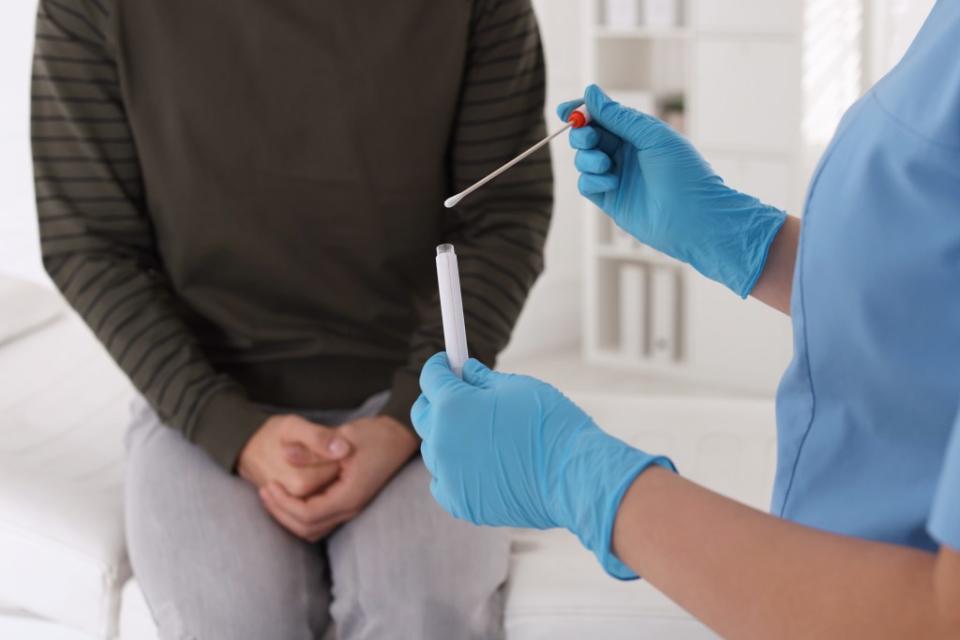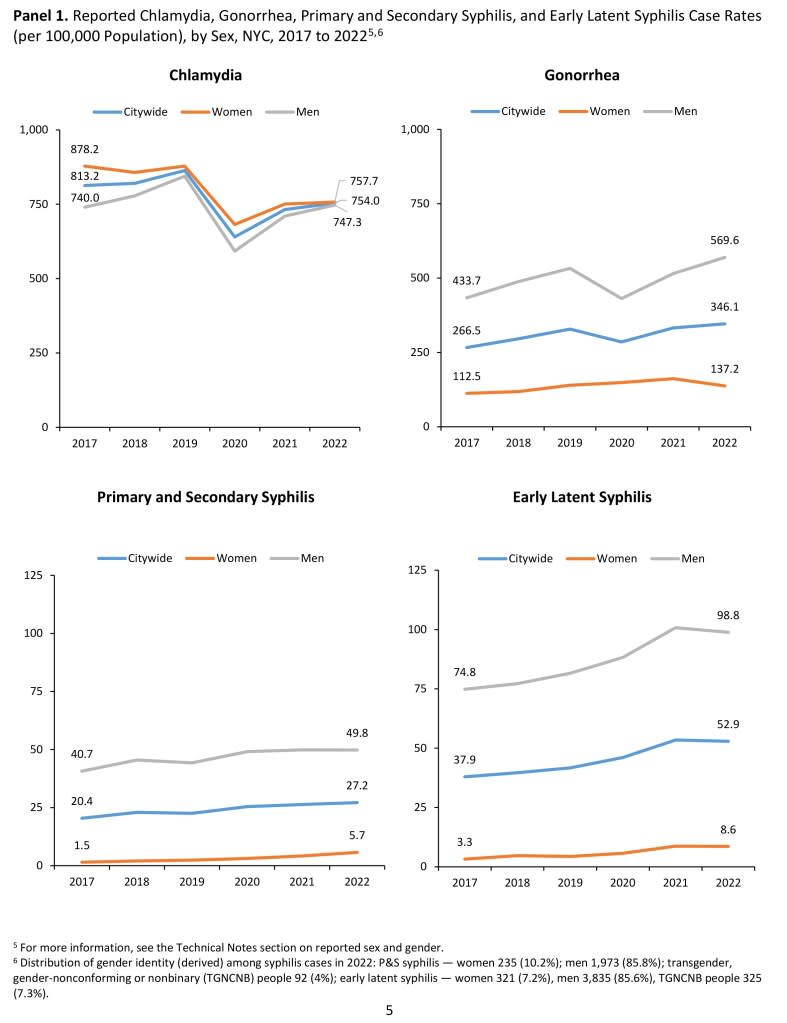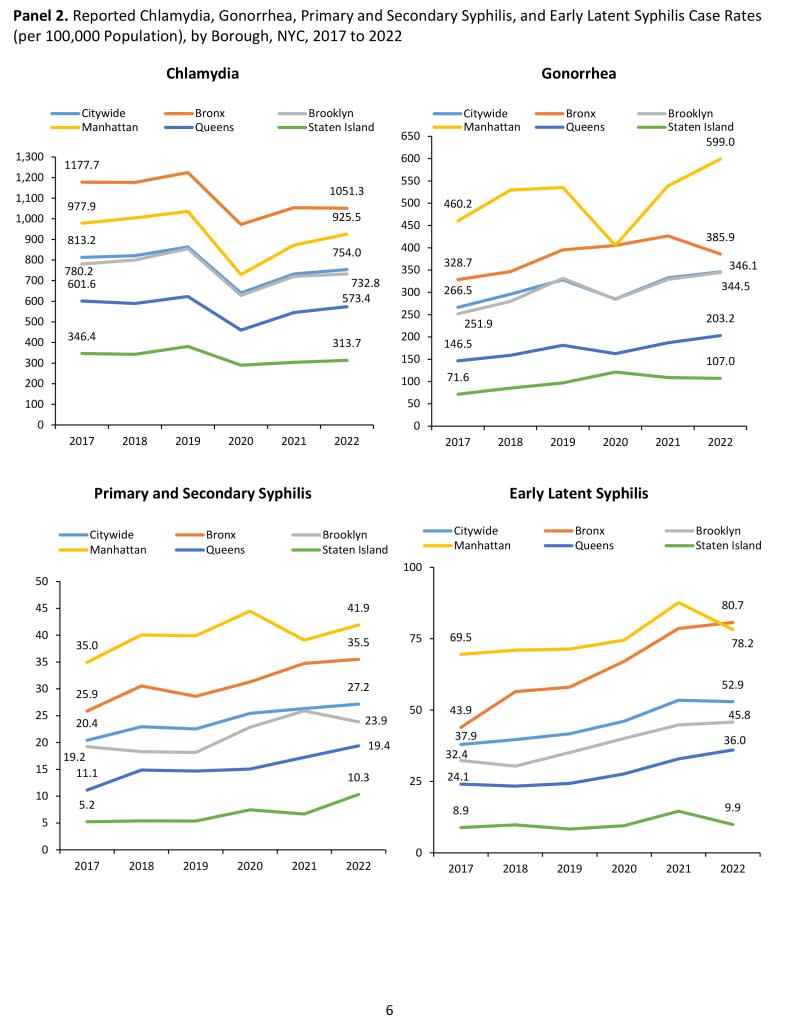Sexually transmitted infections spike in NYC, alarming health data shows — here’s why

- Oops!Something went wrong.Please try again later.
The number of sexually transmitted infections has spiked across the Big Apple, disturbing new data from the city’s Department of Health and Mental Hygiene shows.
The gonorrhea rate is up 11% among men and the syphilis rate has skyrocketed a staggering 36% among women, according to the 2022 Sexually Transmitted Infections Surveillance Report, released Tuesday.
Infection rates are particularly concerning for New York City’s youngsters.
Girls and women aged between 15 to 24 were five times more likely to have chlamydia than females in any other age category. Cases in that age group accounted for approximately 58% of all chlamydia diagnoses citywide.
Meanwhile, gonorrhea rates were highest among men aged between 25 to 34. The number of men with rectal chlamydia also increased for the second consecutive year.

“The data underscores the importance of sexual health support and services,” Health Commissioner Dr. Ashwin Vasan declared after the release of the report.
Health experts say several reasons could account for the rise in case numbers.
The coronavirus pandemic likely kept many New York City residents from seeking medical care for possible STIs in 2020 and 2021.
The data released on Tuesday is for the entirety of 2022 — a year when many people began returning to their health providers for testing and treatment. As testing increased, so did case numbers, meaning there may not necessarily be more infections.
Secondly, the Department’s doctors noted that many communities “face barriers to care,” as evidenced by discrepancies in cases when broken down by race, location and sexual orientation.
For instance, syphilis rates have gone up disproportionately among Latina/Hispanic and black women, while chlamydia and gonorrhea were present nearly twice as much within “poverty neighborhoods.”

Meanwhile, the LGBTQ+ community saw nearly twice as many infections per capita when compared with their straight counterparts.
“Open access to data is essential to finally eliminating stubborn health disparities,” said Dr. Joseph Osmundson, clinical assistant professor in the department of biology at New York University.
“We have so much work to promote equitable access to care and delivery of service,” Dr. Vasan added.
A lack of condom use could also be a factor, with Dr. Nima Majlesi, director of medical toxicology at Staten Island University Hospital, recently The Post that public health messages have “de-emphasized” the importance of safe sex in recent years.
“People are using condoms less and less frequently,” he declared.


However, it wasn’t all doom and gloom for the Big Apple, with the data showing some positive trends.
Gonorrhea rates decreased 15% among women in New York City, while cases of congenital syphilis were also down from 2021.
“Getting tested for STIs is of utmost importance,” said Dr. Sarah Braunstein, assistant commissioner for the Health Department’s Bureau of Hepatitis, HIV, and Sexually Transmitted Infections. “Knowing your STI status allows you to take care of yourself and your sexual partners, get treatment if you need it, and acts as a gateway into longer-term sexual health care.”

